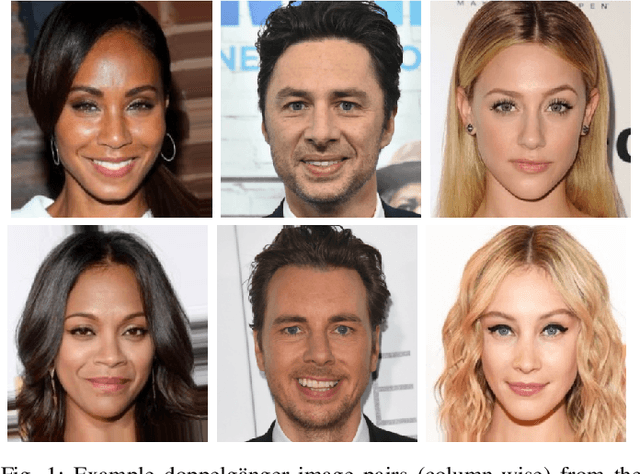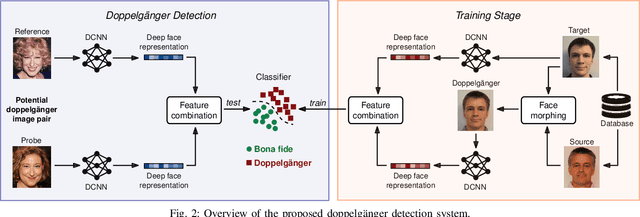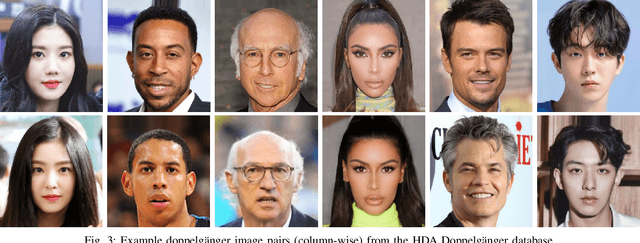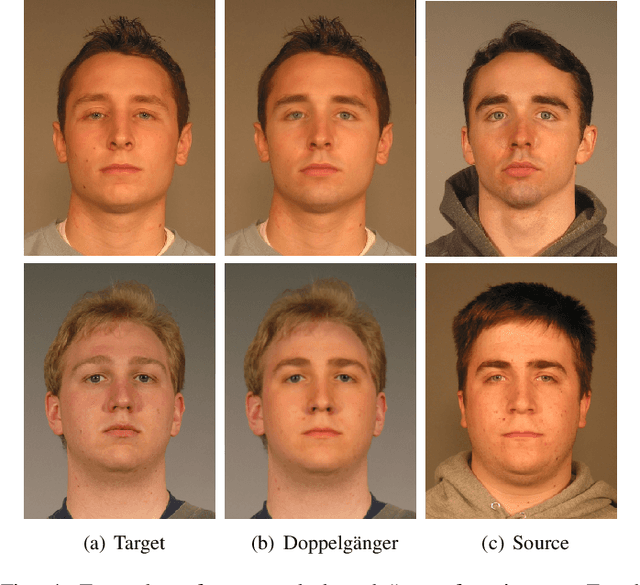Reliable Detection of Doppelgängers based on Deep Face Representations
Paper and Code
Jan 21, 2022



Doppelg\"angers (or lookalikes) usually yield an increased probability of false matches in a facial recognition system, as opposed to random face image pairs selected for non-mated comparison trials. In this work, we assess the impact of doppelg\"angers on the HDA Doppelg\"anger and Disguised Faces in The Wild databases using a state-of-the-art face recognition system. It is found that doppelg\"anger image pairs yield very high similarity scores resulting in a significant increase of false match rates. Further, we propose a doppelg\"anger detection method which distinguishes doppelg\"angers from mated comparison trials by analysing differences in deep representations obtained from face image pairs. The proposed detection system employs a machine learning-based classifier, which is trained with generated doppelg\"anger image pairs utilising face morphing techniques. Experimental evaluations conducted on the HDA Doppelg\"anger and Look-Alike Face databases reveal a detection equal error rate of approximately 2.7% for the task of separating mated authentication attempts from doppelg\"angers.
 Add to Chrome
Add to Chrome Add to Firefox
Add to Firefox Add to Edge
Add to Edge